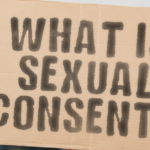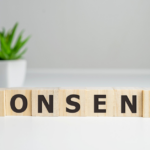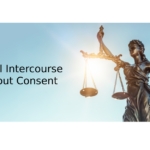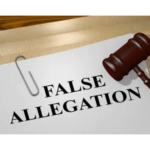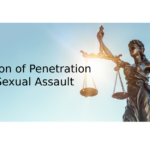Are ‘Pretext Calls’ Admissible in Sexual Assault Cases?

It has been reported that the complainant in the high profile sexual assault trial of former Wallabies player, Kurtley Beale, secretly recorded a phone call with him in order to induce him to say he groped and sexually assaulted her in a bathroom cubicle at a Bondi Beach pub in December 2022.
The call was admitted into evidence during the trial, which is currently underway in the New South Wales District Court.
In it, the complainant can be heard putting the allegations to Mr Beale and asking him what made him think she was “keen” as she “kept saying no” during the encounter.
Also before the jury were notes made by the complainant with the heading ‘Purpose of call’ beneath which was written ‘convince him he is guilty’ and ‘he will [be] better off if he confesses’.
During the complainant’s cross examination, Mr Beale’s defence barrister, Margaret Cunneen SC, put to the complainant, ‘Your intention, I suggest to you, was to talk him into thinking he’d done something wrong’ – a suggestion to which, of course, the plaintiff disagreed.
The trial continues before Judge Graham Turnbull and a jury of 12.
Pretext calls – a common tactic
‘Pretext calls’ are a common tactic used by police to facilitate admissions as part of sexual assault investigations.
But are these calls admissible in court?
Here’s a rundown of how pretext calls are used to bolster allegations of sexual assault, and what the law says about their admissibility in court.
What is a pretext call?
When an alleged victim (or ‘complainant’) makes a formal complaint to police regarding a sexual assault, it is common for police to suggest a pretext phone with the alleged offender.
This phone call will generally involve a complainant putting their allegations directly to the alleged offender. Common prompts include:
- Why did you do it?
- You knew I didn’t consent to that right?
- Why would you do that when I said no?
- Why did you keep going when I said stop?
Police in New South Wales will generally need to obtain a listening device warrant in order to record a pretext conversation without the suspect’s consent.
Not obtaining such a warrant could mean the recording of the pretext call is unlawful under the provisions of the Surveillance Devices Act 2007 and can be rendered inadmissible in court on that basis.
Will a pretext call confession be admissible at trial?
If a suspect confesses or says otherwise incriminating statements during a pretext call, these ‘admissions’ are likely to be admissible at any subsequent criminal trial.
The exception is where certain protections under the Evidence Act 1995 (NSW) apply.
Section 84 of the Act provides that evidence of an admission is not admissible unless the court is satisfied that the admission, and the making of the admission, were not influenced by:
- violent, oppressive, inhuman or degrading conduct, whether towards the person who made the admission or towards another person, or
- a threat of conduct of that kind.
Further protections exist under the Act if:
- The evidence is not relevant to the probability of the existence of a fact in issue in the proceeding (section 55).
- The evidence is insufficiently probative or unfairly prejudicial to the accused (sections 135-137).
Although there is a qualified right to silence in NSW, silence in response to an accusation via a pretext call can amount to admission in some limited circumstances. When it will be admissible is very context dependent, the NSW Court of Appeal noted in R v Freeman (unrep, 18/12/86, NSWCCA) that:
Where failure to deny is relied on, it is necessary to ensure that, before any such evidence is admitted, the circumstances are such as to leave it fairly open to conclude that silence is such as to convey a tacit admission of the truth of what is being asserted. This will, of course require consideration of whether the circumstances were such that some denial or explanation might reasonably be expected
Overall it’s likely that admissions made during a pretext call will be admissible in a. subsequent criminal trial in most circumstances.
The offence of sexual assault in NSW
Section 61I of the Crimes Act 1900 (NSW) outlines the offence of sexual assault in NSW. The offence is defined as:
sexual intercourse with another person without the consent of the other person and [knowing] that the other person does not consent to the sexual intercourse
‘Sexual intercourse’ is defined by section 61H of the Act as:
(a) sexual connection occasioned by the penetration to any extent of the genitalia (including a surgically constructed vagina) of a female person or the anus of any person by:
(i) any part of the body of another person, or
(ii) any object manipulated by another person,
except where the penetration is carried out for proper medical purposes, or
(b) sexual connection occasioned by the introduction of any part of the penis of a person into the mouth of another person, or
(c) cunnilingus, or
(d) the continuation of sexual intercourse…
Section 61HI of the Act defines sexual consent as when a person “freely and voluntarily agrees to sexual activity”. Consent can be withdrawn at any time. Section 61HJ makes clear there is no consent where the alleged victim:
- Does not say or do anything to communicate consent.
- Lacks capacity to consent.
- Is so affected by alcohol or another drug to be incapable of consenting.
- Is unconscious or asleep.
Consent is also absent where a person participates in sexual activity due to:
- Force, fear of force or fear of serious harm.
- Coercion, blackmail or intimidation.
- Fraudulent inducement.
- They are unlawfully detained.
- They are overborne by the abuse of a relationship of authority, trust or dependence.
- They are mistaken about the nature or purpose of the sexual activity.
- They are mistaken about the identity of the person of they are married to the person.
Knowledge on behalf of the accused of the complainant’s lack of consent, can be both actual knowledge and “constructed” knowledge given certain circumstances.
Section 61HK of the Crimes Act 1900 (NSW) states that a person is taken to know that another person does not consent if:
- the accused person actually knows the other person does not consent to the sexual activity, or
- the accused person is reckless as to whether the other person consents to the sexual activity, or
- any belief that the accused person has, or may have, that the other person consents to the sexual activity is not reasonable in the circumstances.
A belief of consent will not be “reasonable” if the accused person did not, within a reasonable time before or at the time of the sexual activity, say or do anything to find out whether the other person consents to the sexual activity.
Defending against a sexual assault charge
It is important to be aware that the onus rests on the prosecution at trial to prove all elements of a sexual assault charge beyond a reasonable doubt.
Other than putting the prosecution to proof, other common arguments commonly put forth in court when defending sexual assault allegations include:
- Sexual intercourse did not occur as alleged, or at all,
- Someone else committed the sexual assault (misidentification),
- The complainant consented to the sexual intercourse.
- Circumstances meant that knowledge of non-consent was not possible.
- The offending occurred in circumstances of duress, as a result of mental illness or another formal defence under law.
Going to court?
If you are going to court for a sexual offence, call Sydney Criminal Lawyers® anytime on (02) 9261 8881 to arrange a free first conference with an experienced criminal defence lawyer, who will take the time to advise you of your options, the best path forward and the costs involved.

